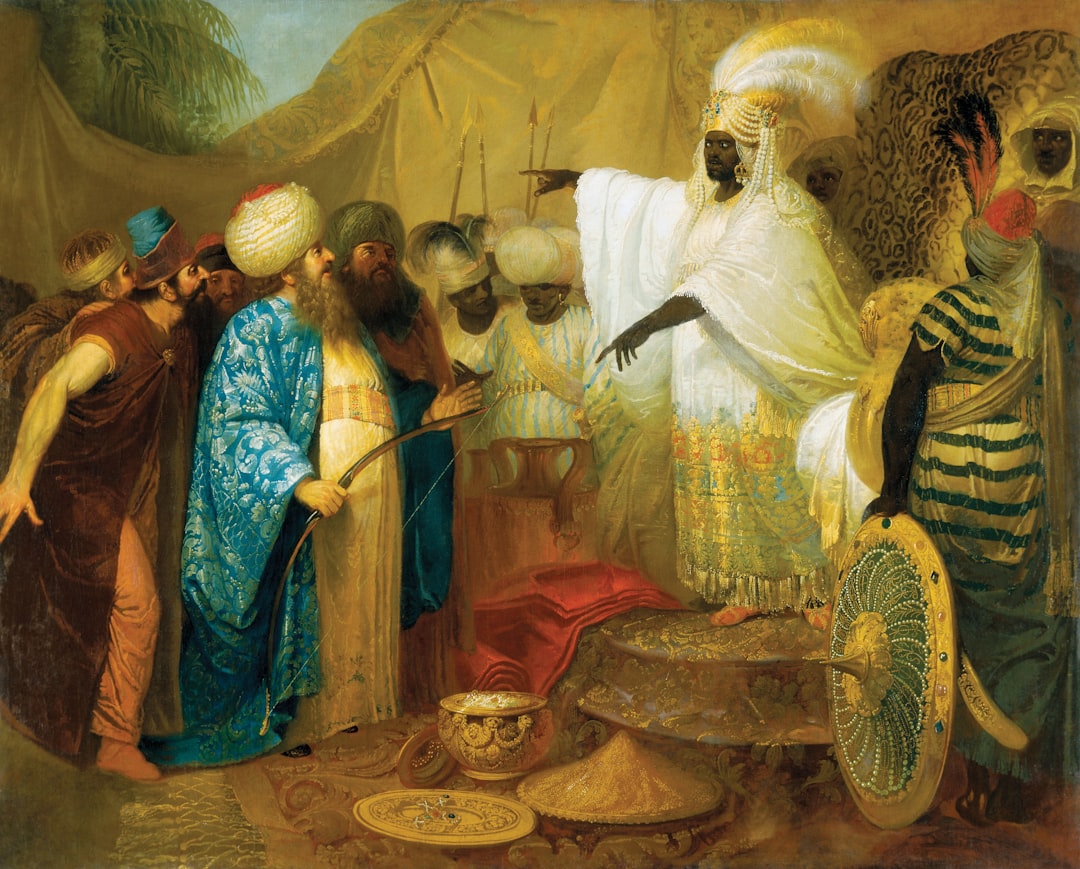From the halls of Plato’s Athens to the courts of ancient Persia, writers have long contrasted the vision of a perfect ruler with the messy, often tragic reality of political power. By examining classical texts across cultures, we can trace how ideals of justice, wisdom, and virtue collide with human frailty, ambition, and the demands of empire.
1. The Blueprint of the Perfect Monarch
Plato’s Philosopher‐King
In The Republic, Plato famously imagines a ruler who is both philosopher and statesman: educated to love Truth above all, immune to personal gain, and guided by the Form of the Good. The philosopher-king embodies perfect justice—knowing both what is right and how to order society so that every citizen flourishes.
The Indian Rājarṣhi: Rama in the Rāmāyaṇa
In Valmiki’s Rāmāyaṇa, Prince Rāma epitomizes dharma (righteous duty). When his father King Daśaratha is bound by a promise to exile him, Rāma accepts banishment without complaint—demonstrating that upholding cosmic law outweighs personal comfort. His reign (the “Rāma-Rājya”) is later celebrated as a golden age of peace and prosperity.
Mandate of Heaven in Chinese Thought
Early Chinese classics envision the king (or emperor) as the Son of Heaven, whose virtuous conduct sustains the cosmic order. If he rules with benevolence, floods abate and harvests flourish; if he becomes tyrannical, natural disasters signal the loss of Heaven’s favor—and justify rebellion.
2. Portraits of Flawed Sovereignty
Homer’s Agamemnon: Hubris and Discontent
In the Iliad, Agamemnon commands the Greek forces but blunders through pride. By seizing his comrade Achilles’ war prize, he alienates his greatest warrior, leading to slaughter and grief. Homer shows that even a supreme monarch, blessed by divine ancestry, can undermine justice when personal honor eclipses communal welfare.
The Tragic Oedipus: Justice Turned Inward
Sophocles’ Oedipus Rex presents a king famed for saving Thebes from the Sphinx’s riddle. Yet his virtuous zeal for truth—and the laws of the polis—becomes his undoing when he uncovers his own guilt. Here, justice is impartial and unrelenting; the king who enforces it becomes its victim.
Persian Kings in the Shah Nāmeh
Ferdowsī’s Shāhnāmeh juxtaposes righteous rulers like Jamshīd, whose golden age crumbles under arrogance, with villains like the serpent-shouldered Zaḥhāk, whose tyranny brings darkness and oppression. These narratives warn that power, when divorced from humility and moral responsibility, breeds injustice and social decay.
3. Treatises on Governance: Theory vs. Practice
Nizam al-Mulk’s Siyāsatnāma
The 11th-century vizier Nizām al-Mulk codified princely counsel in the Book of Government, prescribing rigorous meritocracy, just taxation, and accountability for governors. Yet the very courts he served often fell prey to factionalism and intrigue—reminding readers that sound advice rarely prevails against entrenched interests.
Machiavelli’s Realpolitik (a Renaissance Echo)
Though later than our classical period, The Prince offers a stark contrast: idealism gives way to pragmatic counsel—“better to be feared than loved” if one cannot be both. Machiavelli’s realism underscores how the high bar set by earlier theorists collides with the imperatives of survival in a cut-throat world.
4. Why the Tension Endures
-
Human Imperfection vs. Aspirational Models
— Classical authors set the bar high: wisdom, self-restraint, empathy. Their recurring theme is that human rulers—no matter how noble—struggle to live up to their own standards. -
Justice as Universal Law vs. Political Expediency
— The vision of a ruler who applies law impartially often bumps against the need for alliances, rewards, and punishments that keep fragile polities intact. -
Moral Education vs. Real-World Constraints
— Texts like Plato’s dialogues functioned as educational ideals more than blueprints; they provoked reflection, not precise programs. Practical governance demanded compromise, even at the cost of purity.
5. Lessons for Today
-
Critical Reflection on Leadership
Modern readers can see that no system, however well designed on paper, can fully contain the vicissitudes of human character and circumstance. -
Balancing Ideal and Pragmatic Goals
The classical tension—between the perfect king’s vision of justice and the rulers who fall short—remains instructive for contemporary debates on governance, accountability, and the role of ethics in politics. -
Value of Literary Imagination
By engaging with these stories and treatises, we cultivate the capacity to imagine better forms of leadership—even as we acknowledge the limits imposed by history and human nature.
“He who reaches for the heavens must reckon with gravity.”
Classical literature’s portraits of kings—ideal and flawed—invite us to hold two truths together: to strive for justice and virtue in leadership, while remaining sober about the stubborn realities of power. In that balance lies the enduring wisdom of the ancients.





